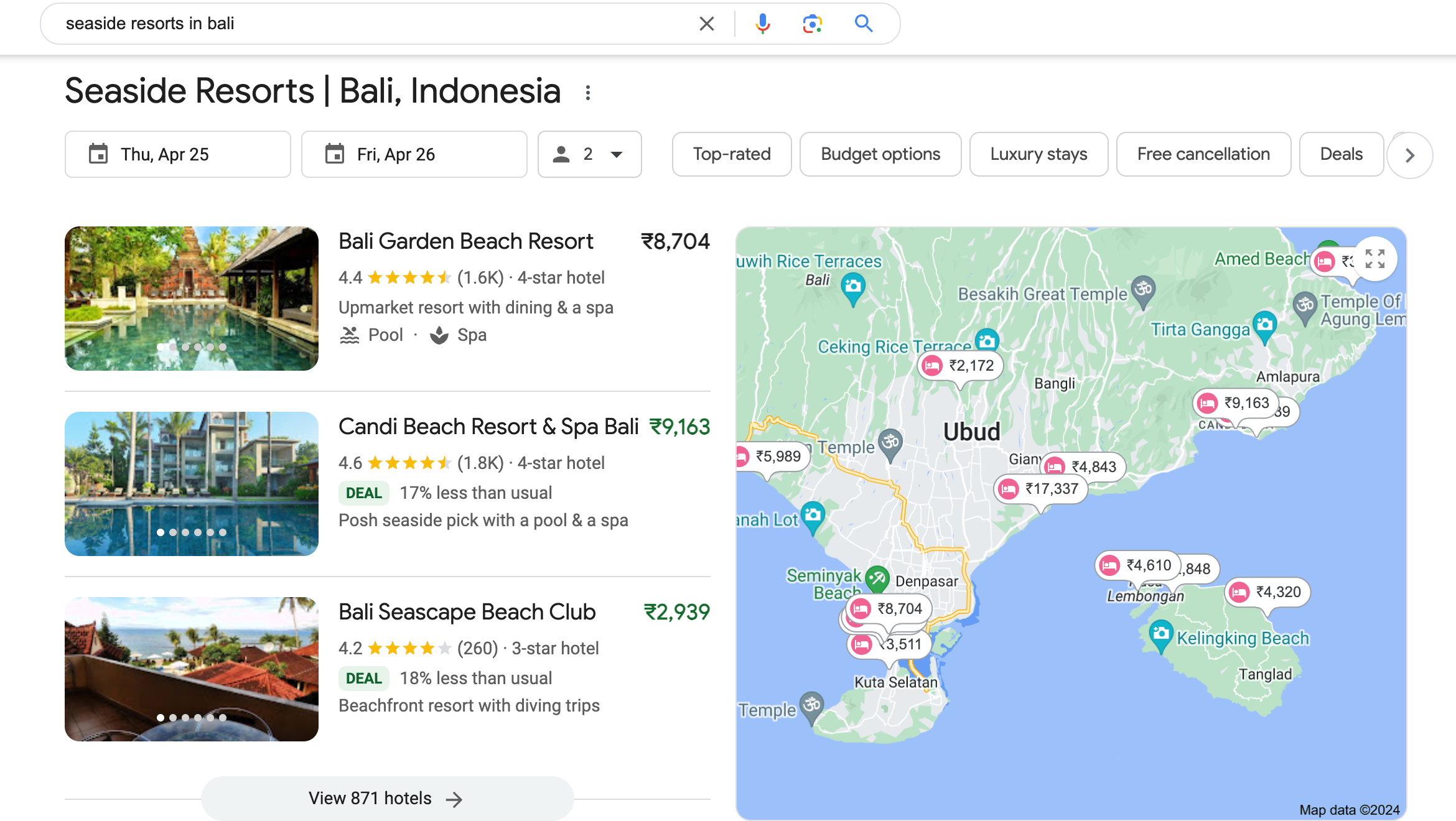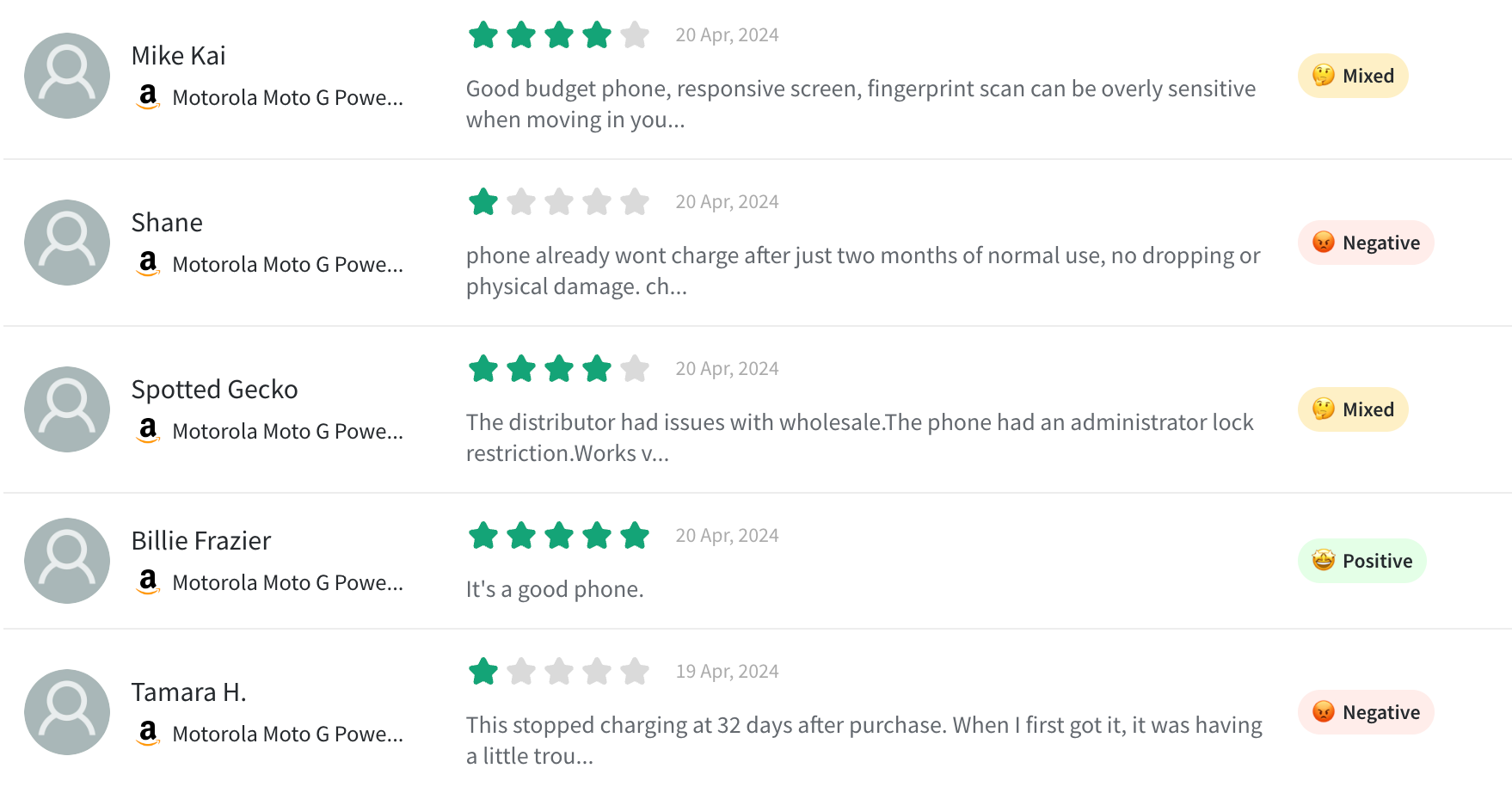Online Reputation Management: The Small Business Guide to Going Big

Parvathi Vijayamohan
Last Updated: 10 November 2024
11 min read

Imagine you’re the owner of a grocery business which has recently moved into the online space. While things are going well overall, you just got some negative reviews, and these have hurt your ratings on Google Maps.
Sounds familiar? Then you’ve got good reason to consider online reputation management.
In 2024, success has become synonymous with reputation. With the rise of online reviews, social media, and digital feedback, even small businesses need to put their best foot forward. So let’s dive into our guide to online reputation management for small business.
What is Online Reputation Management?
Online Reputation Management (ORM) is a strategy for influencing, monitoring and managing the online perception of a business or individual. An effective ORM strategy has two key goals:
- Protect your reputation: This involves monitoring what people are saying about you online, and addressing customer feedback quickly and professionally.
- Enhance your reputation: A good ORM strategy goes beyond just defense. It aims to build trust and credibility online. This can be done by encouraging positive reviews, creating high-quality content, and engaging with your audience on social media.
How does online reputation management differ for a small business versus a large corporation?
| Corporations | Small Businesses | |
|---|---|---|
| Scale | Deal with a much larger volume of online data – reviews, social media mentions, news articles. | Typically have fewer online mentions and reviews to track. |
| Resources | Invest in sophisticated monitoring tools and may have dedicated ORM teams. | Rely on manual monitoring or free tools and focus on a smaller number of key platforms. |
| Crisis Management | Follows established protocols for responding to negative press or social media attacks. | Reacts quickly and addresses the issue directly with the customer. |
| Brand Advocacy | Relies on a broader range of brand advocacy strategies, including influencer marketing, customer loyalty programs, or community forums. | Can leverage personal connections with customers and incentives to encourage positive reviews. |
| Overall Focus | Maintaining an established presence, reputation repair for past issues or proactively shaping the online conversation. | Building a positive online presence from scratch, focusing on encouraging reviews and creating high-quality content. |
In short, think of ORM like a garden. For a small business, it’s about weeding out negative comments, and cultivating good reviews. For a corporation, it’s about managing a vast landscape, and dealing with everything from weeds and pest attacks to the occasional storm!
Why Should You Invest in Online Reputation Management if You’re a Small Business?
1. To Build Trust and Credibility
Just like a personal recommendation from a trusted friend, most people check out online reviews before making a purchase. According to a study by Testimonial Engine, more than 88% of customers will read a review first before taking action.
So, in short – the more social proof your business has, the more customers are willing to trust you. Thanks to effective social proof tools.
“Online reviews represent real-life experiences, offering potential customers a glimpse into the quality, value, and reliability of the product or service they’re considering.”- Mention
One example of a brand that got increased sales due to online reviews is Amazon.
According to Amazon’s guidelines, written reviews should be at least 20 words and no more than 5,000 words. As well as showing the content provided by reviewers, the platform also displays the total number of ratings. Additionally, text reviews, photos, and videos are categorized separately. These help build trust and credibility among consumers. |
2. To Stand Out from Competitors
Imagine that you are looking for a beachfront resort in Bali. So you Google it, and you are presented with a huge range of options – most of them identical in terms of ambiance, facilities and prices.
You’re unsure which one to pick, so you dive deep into their online ratings and reviews.
With 81% of customers using Google to evaluate local businesses, how your business appears online can make a huge difference to your bottom line.

3. To Diminish Negative Publicity
When does publicity become negative? You can tell by its impact. Research by Mozshows that with just one negative article, you risk losing 22% of potential customers. Take that to four or more? You might lose nearly 70%.
Negative reviews are unavoidable, but how you respond to them matters. ORM strategies can soften their impact because they help you address these issues promptly and professionally.
Nike is an example of a brand that has mastered online reputation management.
They created a dedicated social media handle for customer support, created a response team, and allowed customers to contact them directly through the Twitter handle @NikeService. In this way, they are able to respond to customers and resolve issues faster. |
4. To Enhance Brand Perception
Imagine you’re meeting someone for the first time. Their clothes, the way they speak, and their overall vibe all contribute to the impression you form about them, right?
Brand perception is kind of the same. It’s not what the brand says about itself, but what people think and feel about it, based on their experiences and exposure.
Here’s a breakdown for you:
|
So, brand perception is like a reputation – it’s built over time and reflects the overall impression people have of it. It can influence whether someone chooses that brand over a competitor. This is why online reputation management is so important.
5. To Boost Search Engine Rankings
In a perfect world, potential customers would land right on your doorstep (or website). But with so much competition out there, the reality is that people need a reason to find you in the first place.
Good discoverability – that is, good rankings – can help a small business compete with larger, more established companies, regardless of budget.
So, how does ORM play a role in search engine rankings?
Google considers factors like online reviews, social media mentions, and brand awareness when ranking websites.
When your business performs well in these 3 areas, that sends a positive signal to Google. These lead to improved rankings and higher click-through rates, which can boost your website’s rank over time.
Additionally, a good online reputation is also vital for local SEO. Positive reviews on Google My Business and other local directories like Yelp can greatly boost your ranking.
What’s the difference between ORM and SEO?
Online reputation management and search engine optimization are two sides of the same coin, with different goals and strategies.
|
How to Take Control of Your Online Reputation
Step 1: Claim Your Online Territory
First, claim your profiles on all the key platforms where your customers might be searching for you. This includes:
- Google My Business: This is crucial for local businesses. It allows you to manage your listing, publish your location, add photos, and get customer reviews.
- Social Media: Set up profiles on platforms like Facebook, Instagram, TikTok, Reddit or Nextdoor – whichever is relevant to your target audience.
- Review Sites: Claim your profiles on popular review sites like Yelp, TripAdvisor, and Google Reviews.
“77% of consumers will use at least two review platforms in their business research.” – BrightLocal
Step 2: Monitor What People Are Saying
Once you’ve claimed your online territory, it’s time to listen. Here are some ways to monitor your online reputation:
- Alerts: Set up Google Alerts for your business name and variations of your keywords. This will notify you whenever someone mentions you online.
- Social Listening Tools: Free or paid tools, like the ones listed below, can help you track brand mentions across various platforms.
- Regular Reviews: Make it a habit to regularly check your profiles on review sites and social media for new mentions.
Step 3: Respond Promptly and Professionally
How you respond to online feedback, both positive and negative, is crucial. Here are some tips:
- Respond quickly: Aim to respond to reviews within 24-48 hours.
- Be professional and courteous: Thank happy customers for their feedback and acknowledge any concerns raised in negative reviews.
- Take negative feedback seriously: Don’t get defensive. Apologize for any problems and offer solutions.
- Respond publicly (mostly): By responding publicly, you show other potential customers that you care about resolving issues. In rare cases, if the conversation gets heated, you can take the conversation private by offering to connect via DMs or email.
Explore Deeper Customer Insights with SurveySparrow
Try it for Free!
14-Day-Free Trial • Cancel Anytime • No Credit Card Required • Need a Demo?
Step 4: Proactively Build a Good Reputation
Don’t wait for reviews to come to you. Here’s how to be proactive:
- Encourage Reviews: Ask satisfied customers to leave positive reviews on Google My Business and other relevant platforms.
- Create High-Quality Content: Share informative or engaging content related to your industry on your website and social media.
- Run Contests and Promotions: Engaging with your audience through contests and promotions can generate buzz and encourage interaction.
- Highlight Customer Stories: Share positive customer experiences on your website or social media. This builds trust and social proof.
- Highlight Employee Stories: These can be a great way to show your company values in action. They also add a human touch to your brand.
Step 5: Be Consistent and Patient
Building a strong online reputation takes time and consistent effort. Here are some reminders:
- Be patient: Don’t expect overnight results. Focus on providing excellent customer service and consistently engaging with your online audience.
- Stay positive: Even a few negative reviews are inevitable. Focus on the positive and respond constructively to criticism.
- Make it a team effort: Encourage your entire team to understand the importance of online reputation management. Everyone should be prepared to respond to customer feedback positively.
Bonus Tip: Turn Advocates into Brand Ambassadors
Happy customers are your best asset.
Identify loyal customers and consider offering them incentives to become brand ambassadors. This could involve featuring them on social media or offering them a discount for referring new customers.
Which Online Reputation Management Tool is Best for Small Businesses?
SurveySparrow’s powerful Reputation Management software allows you to access, manage, and respond to reviews from 99+ review sites on a single dashboard. It also enables you to understand the sentiment behind each review.

Get instantly notified whenever someone posts a review by setting up custom workflows.
This applies to Slack too – you can get alerts for reviews based on custom conditions. For instance, you can set up an alert message when someone gives a 1-star rating.
You can also filter these reviews, and ticket them for further action.
For example, let’s say that a customer posted a good review on Yelp, highlighting the great service they got from Susan, a junior employee. You can create a ticket for that review and assign it to HR for the next step – which can be a reward or a kudos for Susan in your internal group.
Need help replying to reviews? Ditch the canned responses – our AI will help you draft replies in real-time.
You can also showcase the best reviews by embedding them on your website.

Suggested Reading: 10 Best Tools for Online Reputation Management
Wrapping Up
Reputation is like currency, especially for small businesses with a limited customer base. You need to manage it well, and that’s where online reputation management comes in.
Whether you choose to invest in professional ORM services or have your own DIY strategies, online reputation management for small business is a vital step toward making it big. We hope you found this guide helpful!

Parvathi Vijayamohan
Content marketer at SurveySparrow.
Parvathi is a sociologist turned marketer. After 6 years as a copywriter, she pivoted to B2B, diving into growth marketing for SaaS. Now she uses content and conversion optimization to fuel growth - focusing on CX, reputation management and feedback methodology for businesses.

Turn every feedback into a growth opportunity
14-day free trial • Cancel Anytime • No Credit Card Required • Need a Demo?




